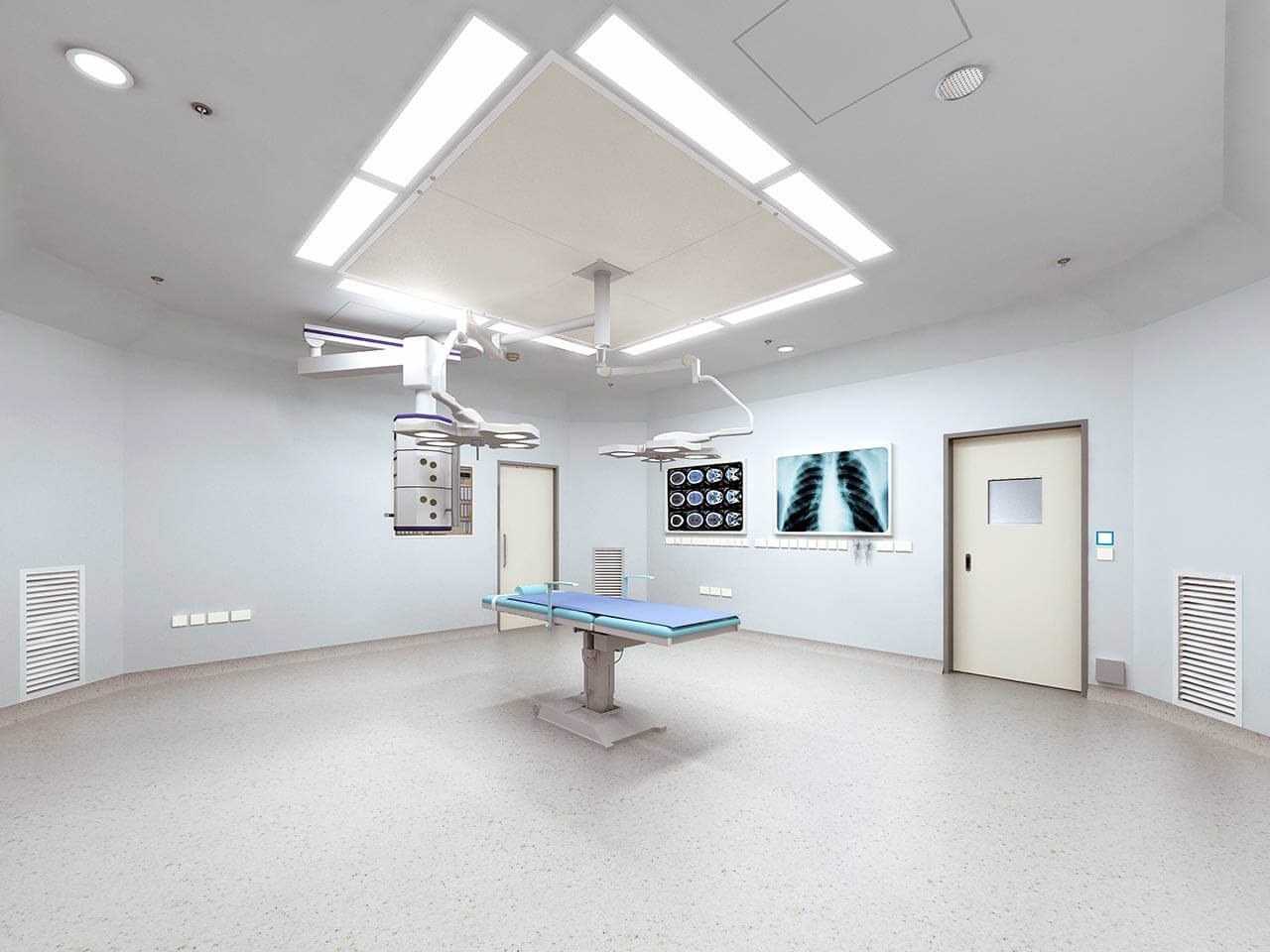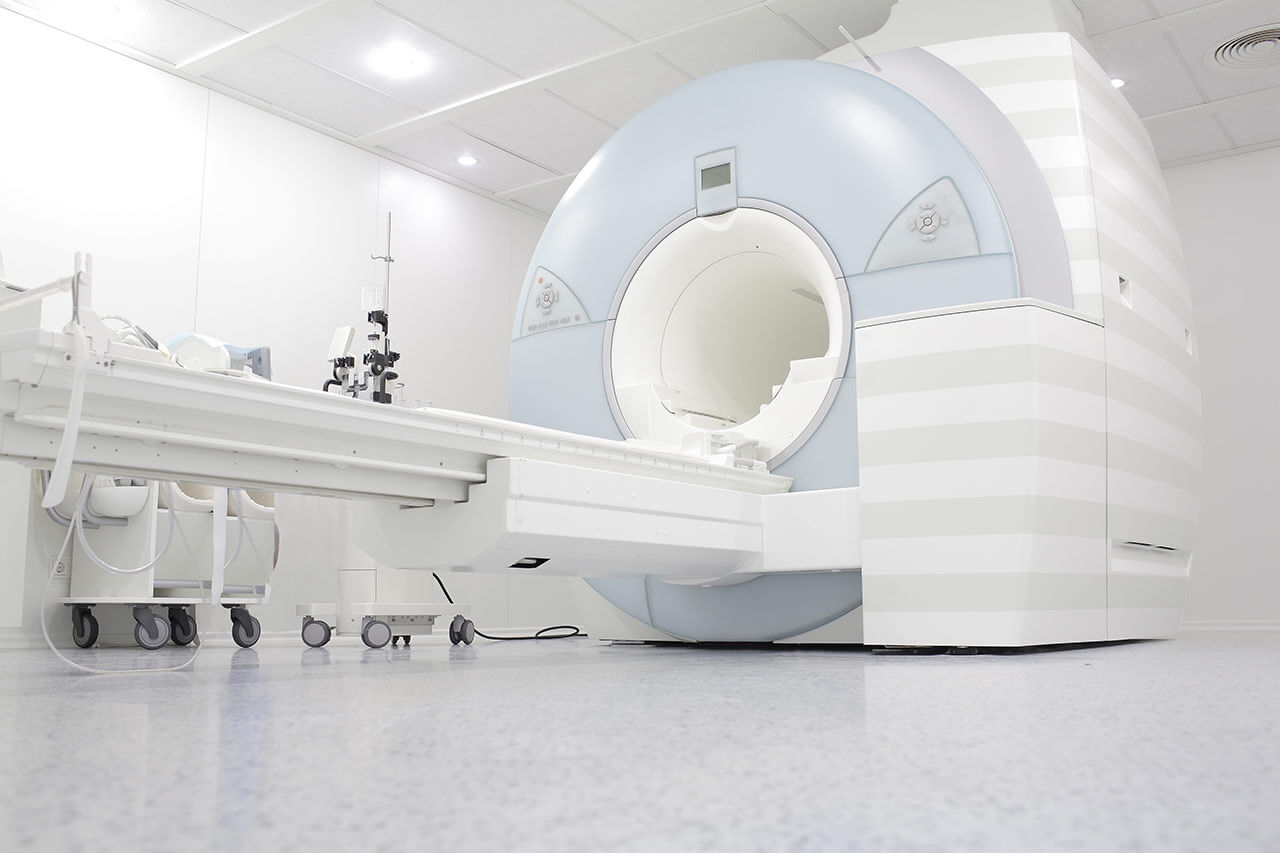
The program includes:
- Initial presentation in the clinic
- clinical history taking
- review of medical records
- physical examination
- laboratory tests:
- complete blood count
- general urine analysis
- biochemical analysis of blood
- inflammation indicators (CRP, ESR)
- indicators blood coagulation
- tumor markers (CEA, CA19-9, AFP, CA125)
- hormonal examination (estrogen, progesterone,
prolactin, DHEA, FSH, LH
- gynecological examination:
- colposcopy
- vaginal swab
- pelvic ultrasound
- transvaginal ultrasound
- breast ultrasound
- ultrasound examination: pelvis, abdomen, thyroid
- consultation of related specialists
- symptomatic specific treatment
- the cost of essential medicines and materials
- nursing services
- control examinations
- full hospital accommodation
- developing of further guidance
Required documents
- Medical records
- Results of hormone blood tests (if available)
Service
You may also book:
 BookingHealth Price from:
BookingHealth Price from:
About the department
The Department of Endocrinology, Diabetology, Angiology and Internal Medicine at the Hospital Neuperlach Munich offers the full range of diagnostic and therapeutic services for patients suffering from endocrine disorders, including type 1 and 2 diabetes mellitus, vascular diseases and various internal diseases. The department is certified by the German Diabetes Society as a specialized Diabetes Center, so the patients can be sure that they will receive highly effective treatment here. In the field of endocrinology, the specialists provide both diagnostics and treatment of thyroid, parathyroid, adrenal, pituitary, ovarian and testicular disorders. Angiology focuses on medical care for patients with chronic wounds and vascular stenosis of the lower limbs, but the doctors also deal with the treatment of occlusive peripheral arterial disease of the lower limbs, vascular stenosis, aneurysms, inflammatory vascular lesions, thrombosis, varicose veins and lymphedema. Angiologists cooperate closely with radiologists and vascular surgeons. The specialists cooperatively provide conservative, endovascular and surgical treatment of vascular diseases. More than 2,500 patients undergo treatment in the department every year.
The Chief Physician of the department is Prof. Dr. med. Klaus-Dieter Palitzsch. The doctor enjoys a reputation as a highly professional endocrinologist and diabetologist. He is a member of several Examination Boards of the Bavarian State Medical Association, as well as a member of professional German and European societies. In addition, according to the prestigious Focus magazine, Prof. Klaus-Dieter Palitzsch ranks among the best doctors in Germany.
The key to successful treatment is high-quality and accurate diagnostics, and therefore the department has modern laboratories and diagnostic rooms. Should hormonal imbalance be suspected, the specialists conduct hormone tests and functional tests, while high-resolution duplex sonography is used for the assessment of the condition of blood vessels. In cooperation with the Department of Radiology, CT or MR angiography, digital subtraction angiography and other vascular tests are also carried out. In addition, the department has special angiography systems for the assessment of vascular patency.
The department's endocrinologists mostly deal with the diagnostics and treatment of hypothyroidism, nodular goiter, osteoporosis, disorders of calcium and phosphorus metabolism, etc. In most cases, some laboratory tests and ultrasound scanning are sufficient to make a diagnosis. In especially complex cases, functional tests, elastography, radiography, CT and MRI, thyroid scintigraphy (in cooperation with the Department of Diagnostic and Interventional Radiology) may be required. The department's medical team specializes in drug treatment of endocrine disorders. The doctors individually select for each patient the most effective medications, which will help to completely get rid of the disease or achieve compensation. If the patient requires surgical treatment, endocrine surgeons will be involved in the therapeutic process. Whenever possible, operations are performed using sparing surgical techniques.
As a certified Diabetes Center, the department is proud of its outstanding success in the treatment of various types of diabetes mellitus, including type 1 and type 2 diabetes mellitus, gestational diabetes and rare types of the disease. In addition, the department's medical team specializes in the treatment of diabetic foot syndrome, which is a serious complication of diabetes mellitus. The treatment of any type of diabetes mellitus is based on the control of blood glucose levels using an optimally selected regimen of insulin therapy, diet therapy and physical activities. The patients with type 2 diabetes mellitus are also offered combination therapy using insulin injections and tableted antihyperglycemic drugs. Particular attention is paid to consultations and special training aimed at teaching patients with diabetes mellitus a new way of life.
The department's service range is complemented by the diagnostics and treatment of vascular diseases. Of particular interest for the specialists in this field is the treatment of occlusive peripheral arterial disease of the lower limbs, stenosis, aneurysms and inflammatory arterial lesions, thrombosis, varicose veins, lymphedema and other peripheral vascular diseases. The department is proud of its excellent diagnostic options, which range from capillary microscopy, duplex sonography and angiography to oscillography, pulse wave velocity measurement and rheography. After receiving diagnostic results, the department's angiologists jointly with radiologists and vascular surgeons develop an individual treatment regimen for the patient. Whenever possible, the preference is given to conservative methods, such as drug therapy, compression therapy, etc. If the patient suffering from vascular pathology requires endovascular or surgical treatment, then it is provided by the highly specialized experts.
The department's range of medical services includes:
- Endocrinology
- Diagnostics and treatment of thyroid diseases
- Hyperthyroidism and hypothyroidism
- Thyroid nodules
- Thyroid cancer
- Autoimmune thyroid disorders (for example, Hashimoto's thyroiditis, Graves' disease)
- De Quervain's thyroiditis
- Diagnostics and treatment of pituitary diseases
- Diabetes insipidus
- Cushing's disease
- Hormonally inactive pituitary adenomas
- Acromegaly
- Pituitary insufficiency
- Prolactinoma
- Pituitary hypogonadism
- Diagnostics and treatment of parathyroid diseases
- Hyperparathyroidism
- Hypoparathyroidism
- Diagnostics and treatment of adrenal diseases
- Adrenal insufficiency
- Adrenogenital syndrome
- Cushing's syndrome
- Adrenal nodules
- Adrenal tumors (incidentalomas)
- Endocrine hypertension (Conn's syndrome, pheochromocytoma)
- Diagnostics and treatment of bone metabolism disorders (focus on the treatment of osteoporosis)
- Diagnostics and treatment of thyroid diseases
- Diabetology
- Diagnostics and treatment of type 1 diabetes mellitus
- Diagnostics and treatment of type 2 diabetes mellitus
- Diagnostics and treatment of gestational diabetes mellitus
- Diagnostics and treatment of rare types of diabetes mellitus
- Diagnostics and treatment of diabetic foot syndrome
- Angiology
- Diagnostics and treatment of occlusive peripheral arterial disease of the lower limbs
- Diagnostics and treatment of vascular stenoses
- Diagnostics and treatment of arterial aneurysms
- Diagnostics and treatment of inflammatory arterial lesions
- Diagnostics and treatment of thromboses
- Diagnostics and treatment of varicose veins
- Diagnostics and treatment of lymphedema
- Internal medicine
- Diagnostics and treatment of infectious diseases, including pneumonia, gastrointestinal and urinary tract infections
- Diagnostics and treatment of immunological disorders
- Diagnostics and treatment of rheumatic diseases
- Diagnostics and treatment of other chronic diseases
- Other medical services
Curriculum vitae
Professional Career
- 1990 Board certification in Internal Medicine.
- 1991 Senior Physician in the Department of Internal Medicine I at the University Hospital Regensburg.
- 1992 Specialization and the right to conduct advanced training courses in Endocrinology.
- 1995 PD and Venia Legendi in Internal Medicine.
- 1995 Certified Diabetologist, German Diabetes Society.
- 1995 Optional advanced training in Internal Intensive Care.
- 1998 Senior Physician with management responsibilities in the Department of Internal Medicine I at the University Hospital Regensburg.
- 1999 Professor in Internal Medicine, Faculty of Medicine, University of Regensburg.
- 1999 Examination Board Member of the Bavarian State Medical Association, focus on Endocrinology.
- 2000 Chief Physician of the Department of Endocrinology, Diabetology, Angiology and Internal Medicine at the Hospital Neuperlach Munich.
- 2000 Member of the Examination Board of the Bavarian State Medical Association, focus on Internal Medicine.
- 2004 Examiner in Internal Medicine, third part of the medical examination, Ludwig Maximilian University of Munich.
- 2005 Certified Endocrinologist, European Society of Endocrinology.
- 2006 Member of the Scientific Advisory Board specializing in Thyroid Diseases.
- 2008 Chairman of the Examination Board of the Bavarian State Medical Association, focus on Internal Medicine.
Special Clinical Interests
- Treatment of diabetes mellitus.
Awards and Honors
- Award for Good Teaching, Bavarian State Ministry for Education, Culture, Science and Arts.
- Prize in Preventive Medicine, German Society of Internal Medicine.
Memberships in Professional Societie
- Chairman of the Committee for Quality Assurance, Training and Continuing Education of the German Diabetes Society.
- German Society of Endocrinology.
- German Society of Internal Medicine.
- Bavarian State Medical Association.
- American Diabetes Association.
- European Society of Endocrinology.
- Massachusetts Medical Society.
Photo of the doctor: (c) München Klinik Neuperlach
About hospital
The Hospital Neuperlach Munich provides modern medical services of the highest quality. The medical center is an Academic Hospital of the Ludwig Maximilian University of Munich, and therefore it can offer its patients innovative diagnostic and therapeutic methods available only in the best German hospitals. The medical complex opened its doors to patients on September 12, 1972 and to this day holds a leading position in the country's medical arena. The medical facility has 500 beds. The highly qualified doctors of the hospital annually admit over 59,000 patients for both diagnostics and treatment, including patients from foreign countries.
The hospital is distinguished by its rich experience and high success rates in conservative and surgical treatment of diseases of the gastrointestinal tract, liver, metabolic disorders, cancers and blood diseases, heart diseases, as well as vascular pathologies. The hospital operates a highly specialized Colon Cancer Center certified by the German Cancer Society. The center is one of the largest medical facilities of this kind in Germany and has advanced therapeutic options for the treatment of life-threatening colon disease. In addition, the hospital provides high-quality obstetric services – more than 1,000 babies are born here annually.
For outstanding achievements in various medical specialties, the hospital was awarded with many prestigious certificates, including the IQM certificate, the DIN EN ISO 9001:2008 certificate, the DGAV certificate as a Competence Center for Liver and Pancreatic Surgery, the DDG certificate of the German Diabetes Society and others. The above mentioned certificates testify to the excellent quality of medical service.
Special attention should be paid to the medical staff of the hospital who have extensive clinical experience and do everything possible to achieve a complete recovery of the patient. During the treatment, both doctors and nursing staff surround the patient with maximum care, support him in every possible way and show a humane attitude. The work of physicians is based on an individual approach to each patient and his clinical case.
Photo: (с) depositphotos
Accommodation in hospital
Patients rooms
The patients of the Hospital Neuperlach Munich live in single, double and triple rooms with all the amenities for a comfortable stay. The patient rooms have a modern and cozy design. Each patient room has an ensuite bathroom with shower and toilet. The furnishings of a standard patient room include an automatically adjustable bed, a bedside table, a wardrobe, a modern multimedia system with a TV and telephone, a table and chairs for receiving visitors. Wi-Fi is also available in the patient rooms.
The patients can also stay in the enhanced comfort patient rooms, which additionally include a safe, a minifridge and upholstered furniture.
The hospital also has a library with a large assortment of books, magazines, CDs and DVDs. In addition, there is a cozy cafe on the territory of the hospital, which offers its guests a variety of delicious snacks, pastries, cakes, ice cream and various drinks. The cafe also has a takeout service.
Meals and Menus
The patient and his accompanying person are offered tasty and healthy three meals a day. All dishes are cooked only from fresh and high quality ingredients. Breakfast and dinner are served buffet style, and the patient can choose the dishes that he likes on his own. For lunch the patient has a choice of three menus, one of which is vegetarian.
If you are on a specific diet for some reason, you will be offered an individual menu. Please inform the medical staff about your dietary preferences prior to the treatment.
Further details
Standard rooms include:
Religion
The religious services are available upon request.
Accompanying person
During the inpatient program, the accompanying person can live with the patient in a patient room or a hotel of his choice. Our managers will help you choose the most suitable option.
Hotel
During the outpatient program, the patient can stay at the hotel of his choice. Our managers will help you choose the most suitable option.





